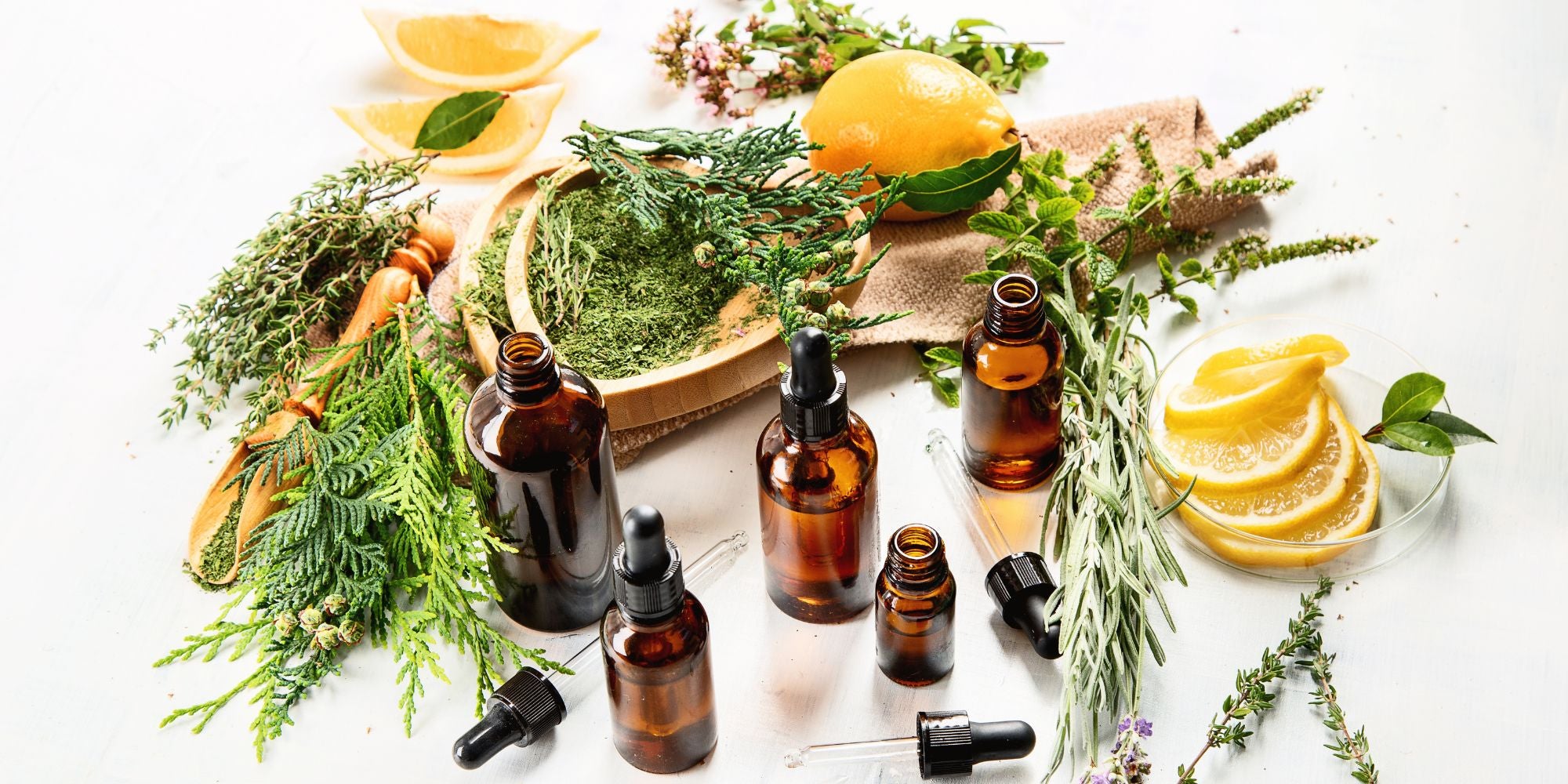
Being a supplement manufacturer out of Colorado for over 10 years, we scoured all the research to find out if essential oils help altitude. In this article, we'll look at some of the most common essential oils for altitude sickness and see what science has to say about their efficacy.
Essential oils are derived from plants and contain chemical compounds that offer therapeutic benefits. When used topically, these oils are absorbed into the skin and body where they interact and produce their desired effects.
While there are many options for altitude including herbs for altitude adjustment, altitude adjustment pills, and altitude adjustment packets --- essential oils have become more recently promoted for altitude sickness.
Below we review each of the 5 most popular essential oils for altitude sickness and the benefits of each.
Essential oils for altitude sickness that some may use include the following:
While essential oils are popular natural remedies, what do the scientific studies say about essential oils for altitude sickness? Do they work and are they effective?
In our research, we could not find any specific studies that shows essential oils help with altitude sickness.
While there are many anecdotal stories of people using essential oils for altitude sickness and other studies to show possible related benefits such as improved performance, relaxation, immune support, blood flow, and sleep --- there were zero studies done on essential oils and altitude sickness specifically.
The short answer is no, however, we did find some evidence of essential oils helping altitude sickness from Dr. Axe:
While there's some evidence essential oils may help altitude sickness, there are not any concrete studies to prove it. And they may not be as effective as some people claim. That means you'll have to make up your own mind about whether essential oils for altitude sickness is worth bringing along.
Essential oils have been used for centuries to treat a variety of ailments. While it may seem like a new trend, the history of essential oils dates back to ancient times.
The use of essential oils has been documented in Egypt as early as 4500 BC. In Egypt, incense was used for religious ceremonies and to treat illness. The ancient Egyptians were also known for using fragrant herbs such as cinnamon, myrrh and frankincense for medicinal purposes.
Altitude sickness is a condition that occurs when people travel to high altitudes too quickly or without proper acclimatization, typically usually above 8,000 feet but as low as 3,000 feet.
The air at high altitudes is thinner than air at sea level. The partial pressure of oxygen (the amount of oxygen molecules in each breath) is lower, which means that it takes more breaths for the body to get enough oxygen.
This causes their bodies to have difficulty with the reduced oxygen levels at those altitudes. Because of this lower partial pressure of oxygen, some people experience symptoms such as headaches, nausea and fatigue when they ascend rapidly to high altitudes.
Symptoms of altitude sickness may include:

Zaca chewables are a top rated altitude supplement for athletes, travelers, mountain-goers, and climbers alike. Our proprietary herbal blend was made to help your body rehydrate, replenish and recover fast. Designed to protect your body and improve your performance, Zaca includes key ingredients as Glutathione which is lost at high altitudes. And because they’re chewable tablets, they’re easy to take when you need them most. Try Zaca's RECOVERY CHEWABLES today and thrive on your next mountain expedition.
SOURCES:
1. Peppermint Oil
https://www.nccih.nih.gov/health/peppermint-oil
2. Effect of Eucalyptus Oil Inhalation on Pain and Inflammatory Responses after Total Knee Replacement
https://www.ncbi.nlm.nih.gov/pmc/articles/PMC3703330/
3. 9 Unexpected Benefits of Eucalyptus Oil
https://www.healthline.com/health/9-ways-eucalyptus-oil-can-help
4. 21 Incredible Health Benefits Of Thyme Essential Oil
https://www.organicfacts.net/health-benefits/essential-oils/thyme-essential-oil.html
5. Thymol and Thyme Essential Oil—New Insights into Selected Therapeutic Applications
https://www.ncbi.nlm.nih.gov/pmc/articles/PMC7571078/
6. Health Benefits of Lavender Essential Oil
https://www.webmd.com/diet/health-benefits-lavender-essential-oil#1
7. What You Need to Know About Lemon Essential Oil
https://www.healthline.com/health/lemon-essential-oil
8. The Effect of Lemon Inhalation Aromatherapy on Nausea and Vomiting of Pregnancy
https://www.ncbi.nlm.nih.gov/pmc/articles/PMC4005434/
9. Traveling into Thin Air: Altitude Sickness Prevention
https://draxe.com/health/altitude-sickness/
10. The effects of peppermint on exercise performance
https://www.researchgate.net/publication/236069688_The_effects_of_peppermint_on_exercise_performance
Copy the coupon code & use it at checkout